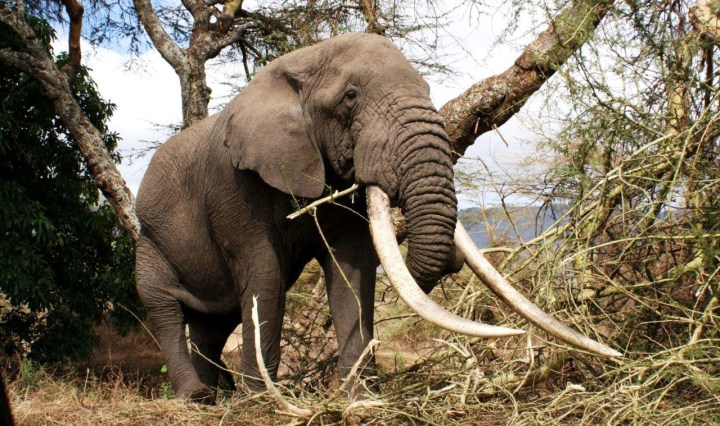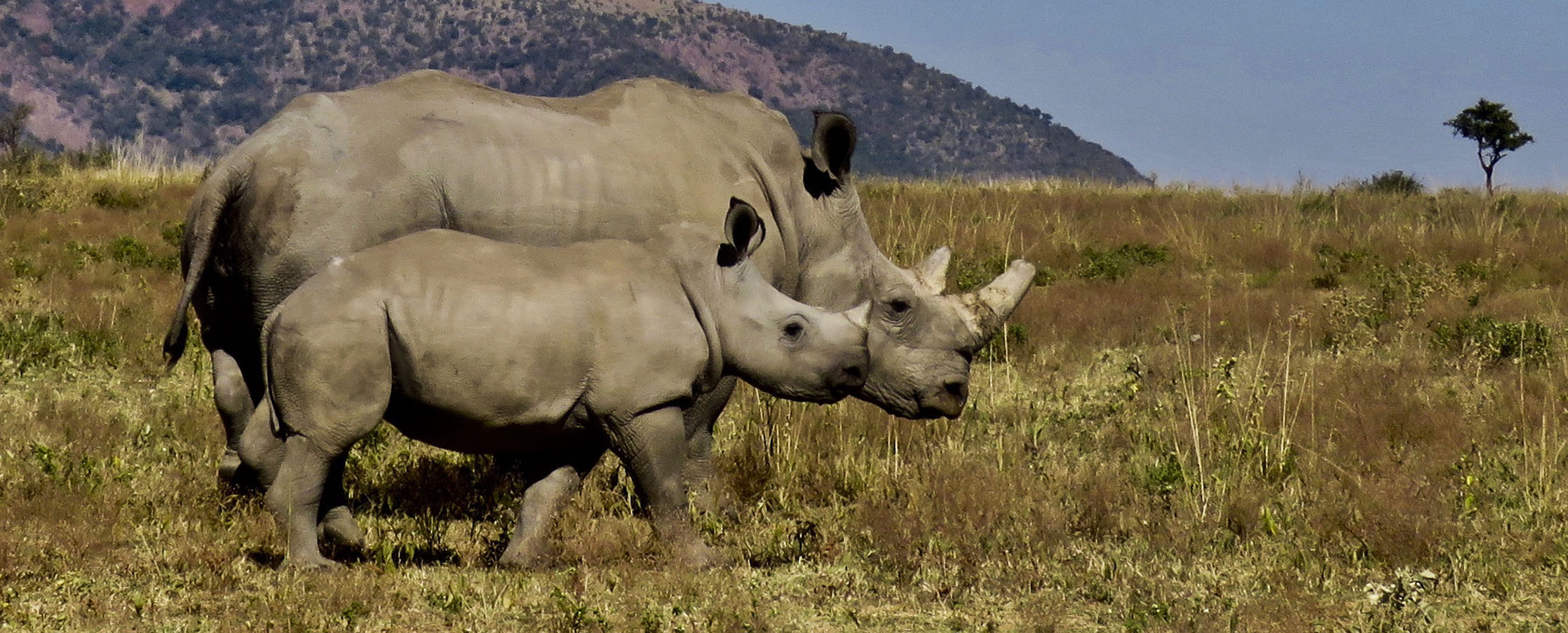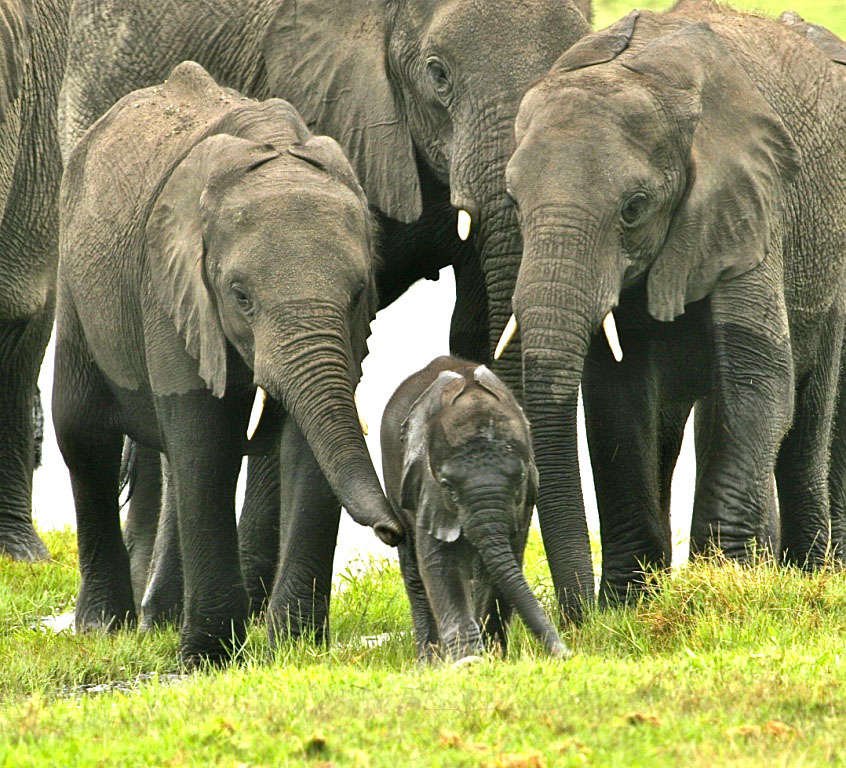TROPHY BAN
Canada blocks import of ivory, rhino horn and trophies

Importing iconic African animal parts is no longer acceptable in Canada – but in the UK, peers blocked a similar ban.
The Canadian government has banned domestic trade in elephant ivory and rhino horn, as well as the import of hunting trophies containing these parts.
The move, spearheaded by Humane Society International/Canada, follows a seven-year campaign by Canadian animal protectionists, artists and musicians such as Bryan Adams and has been supported by African conservationists.
According to data from the United Nations wildlife trade organisation CITES, more than 450 African elephant tusks, 16 rhino horns, 81 elephant trophies and 44 rhino trophies were legally imported into Canada between 2010 and 2021.
A public petition calling for a ban on such imports collected more than 700,000 signatures. The new regulations will take effect on 8 January 2024.
The African elephant population has declined by 96% over the past century and thousands of elephants and rhinos in Africa die at the hands of poachers and hunters each year.
In March 2021, the IUCN updated its Red List of Threatened Species and declared the African forest elephant to be critically endangered and the African savanna elephant endangered. Black rhinos are critically endangered.

The ban was a monumental triumph for elephants and rhinos, said Dr Audrey Delsink, wildlife director for Humane Society International/Africa. (Photo: Helena Kriel)
“Our government is committed to protecting, conserving and enhancing the world’s biodiversity,” said Canada’s Minister of Environment and Climate Change, Steven Guilbeault, responding to the ban.
“This includes reversing the global decline in elephant and rhinoceros populations.
“By strengthening Canada’s response to wildlife trafficking, we will enforce practical solutions that effectively address the illegal ivory trade and support species conservation.
“Canadians overwhelmingly support stricter controls and the government of Canada is delivering.”
“I’m thrilled that Canada has enacted these urgently needed regulations,” said Kenyan elephant conservationist Dr Winnie Kiiru.
“I’ve seen first-hand the devastating effects of poaching and trophy hunting on African elephant and rhino populations. We need countries around the world to act now to protect these amazing animals.
“Canada’s actions send an important message: ivory belongs to elephants.”
The ban is a monumental triumph for elephants and rhinos, added Dr Audrey Delsink, wildlife director for Humane Society International/Africa.
“Both species have suffered tremendously at the hands of poachers, which have caused populations to plummet.
“The Canadian ban sends a powerful message that the international market for such items is closing and tolerance is waning. We urge the South African government to end the trade of these threatened and endangered species.”
Congratulations also came from Burkina Faso’s director of Wildlife and Game resources, Dieudonné Yameogo.
“Canada follows in the footsteps of other countries, such as the USA, China, Hong Kong SAR and the EU, which have all closed or severely restricted their domestic ivory markets in recent years.

An elephant baby and family. (Photo: Francis Garrard)
“This sends a very strong message to all traffickers and poachers: ivory has no market value, anywhere in the world. These measures… could lead to a significant drop in illegal elephant killings in all African elephant range states.”
A similar move to ban trophy imports in the United Kingdom was blocked by a small group of peers. The Labour Party has urged ministers to resurrect the bill, saying a failure to do so would leave the government complicit in the trophy-hunting trade.
The hunting trophies (import prohibition) bill, a private members’ bill led by two Conservatives, Henry Smith, an MP, and Janet Fookes, a peer, had cross-party support and, after passing all Commons stages, appeared set to be approved by the Lords.
But in an apparent ambush that prompted widespread anger, 11 peers made the bill run out of time by tabling more than 60 amendments they insisted on debating individually.
Of the peers, according to The Guardian, six were hereditary, several owned landed estates and all attended leading private schools, eight of them Eton.
The British environment department said it was disappointed at the move but refused to say whether it would in future give the bill more time in the Lords. If this does not happen, the process will need to begin again. DM



















Fantastic
I did not know that the bill had been blocked in England 😟
About bloody time and shame on the Brits! But then if you can export immigrants to Rwanda, you wouldn’t have an issue with shooting an elephant for the wall in your entrance hall, would you?
It’s appalling that the rich, upper crust, landed gentry in England blocked this bill. However, who called wild animals ‘ game’ ? The Brits, for whom killing hundreds of wild animals in a bloody frenzy in the late 1800s in SA, was indeed a ‘game’. Shame on the House of Lords.
Shame on the Brits! Well done Canada!